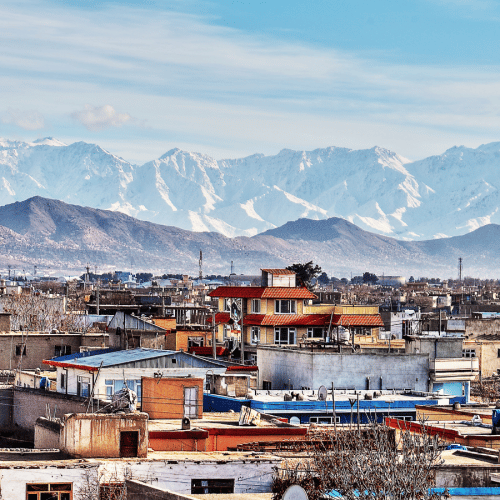
The Norwegian Centre for Humanitarian Studies (NCHS) would like to thank all those who contributed to the NCHS Research Network in the period 2019-2023, and more broadly to the Centre’s success and achievements over the past 12 years.

Tune into the latest episode of Talking Humanitarianism as Dr. Ritesh Shah explores the contested landscape of aid and influence within education in emergency settings.
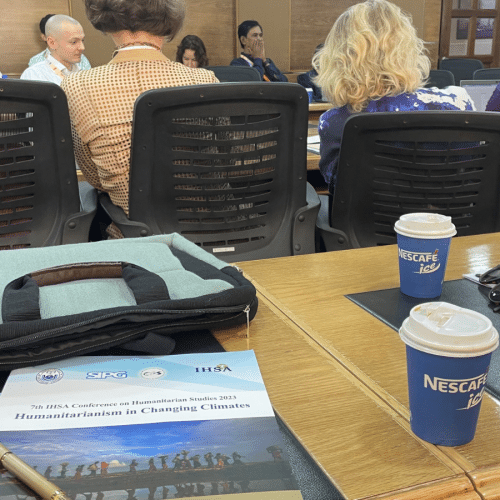
The biennial International Humanitarian Studies Association Conference was held recently in Dhaka, Bangladesh and online, with several NCHS associations contributing.
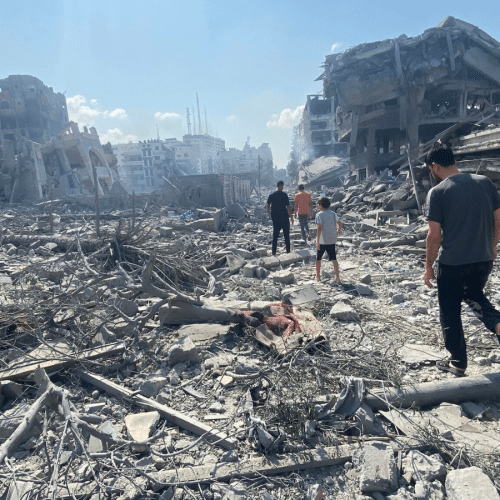
With the humanitarian situation in Gaza becoming more critical by the day, two upcoming seminars will discuss the imperative of a humanitarian ceasefire and what the conflict might mean for the future of Palestine and Israel.

A new book investigates the digital transformation of aid as a form of humanitarian extractivism and how this shifts power towards states, the private sector and humanitarians.
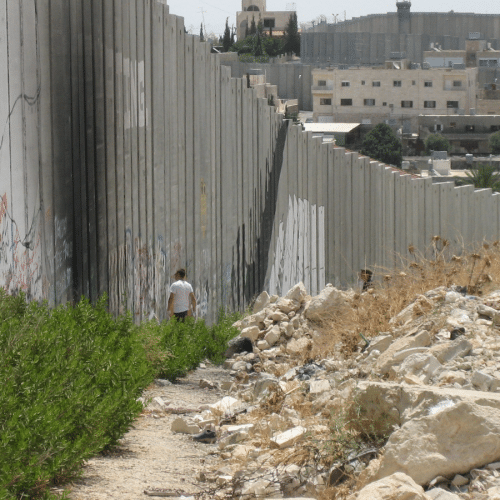
In this PRIO blog, Jørgen Jensehaugen examines the repercussions of the looming collapse of parts of UNRWA.
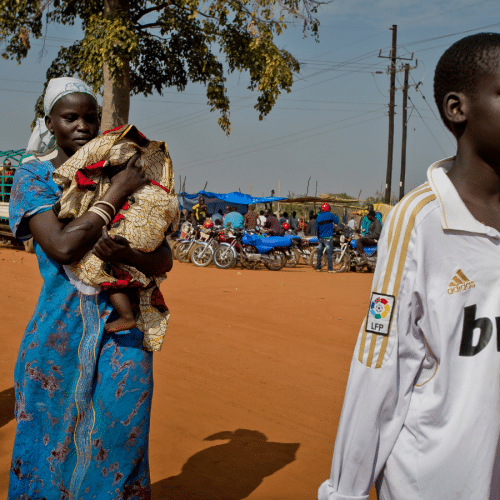
Join this PRIO seminar to explore what shapes refugee journeys, what struggles do they face along the way and what influences their decision making.

PRIO researchers urge development agencies, civil society and humanitarian workers to join the conversation about AI and its consequences for humanitarian work.
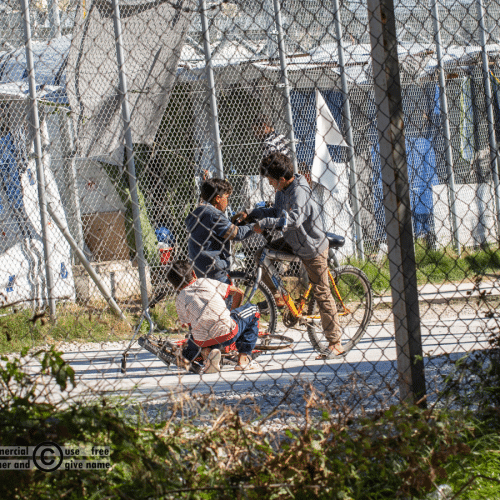
In this episode of Talking Humanitarianism, Heidi Mogstad talks to psychologist for Doctors Without Borders, Katrin Glatz Brubakk, about her recent mission to Lesvos and impressions from assisting refugees in the ‘new Moria’.

In this episode of Talking Humanitarianism, Mr. Itonde Kakoma is in conversation with Dr. Salla Turunen providing his reflections on how the IFRC is situated within the humanitarian landscape, particularly regarding humanitarian diplomacy and multilateral engagement.
This text is based on an op-ed written by Arne Strand and Astri Suhrke, first published in Bistandsaktuelt. This op-ed has been updated by the authors and translated into English by Andrea Beate Furuhovde. You can access the original Bistandsaktuelt publication in Norwegian here.
Afghanistan is facing a combined political and humanitarian crisis. A new escalation of the conflict will be detrimental to the many Afghans who are still heavily reliant on aid, says Arne Strand and Astri Suhrke.
The Taliban control Kabul and almost all of the country. Western embassies and some humanitarian aid workers have been evacuated. Meanwhile, the UN and the Norwegian Refugee Council, among others, have reminded us of the desperate plight of many Afghans.
The new political situation has produced new challenges for aid organisations, in both the short- and long-term, that call for realism, but also dialogue, commitment and a solid dose of strategic pragmatism.
The political situation changed dramatically from an ongoing discussion regarding a possible solution between the opposing parties when President Ashraf Ghani fled Kabul. The Taliban was suddenly in possession of both political and military power; with control on the ground in Kabul they had presumed authority over the state. The situation materialised quicker than anticipated, and much remains uncertain regarding the Taliban’s politics and vision for the state and government.
The first signs from the Taliban political administration are uplifting. They claim they will give amnesty to their enemies and include women in the government. They say that girls have the right to education and women to work, as long as it is consistent with Islam and Sharia. The signals could be tactical; many dare not believe in Taliban promises given their past record. Some choose to join the military and political opposition that had been declared in Panjshir Valley.
It is unclear to what degree the central leadership can control the commanders in the rest of the country. The Taliban is a decentralised organisation where military commanders have relative strong autonomy in their respective territories. Yet they accepted the temporary ceasefire that the leadership declared and did not attack international soldiers during their withdrawal.
The Taliban is an Islamic movement that will rely on a traditional and conservative interpretation of Islam in the execution of the state power they now hold. To run a functional state of Afghanistan, more is needed. There is a need for both internal and external legitimacy, skilled bureaucrats, and professionals in central and local state administrations. There is a need for both the presence of aid organisations and financial support over time.
There are some positive signals. Several governments have indicated they will continue to provide humanitarian support via the UN and major international NGOs. A UN-sponsored conference to secure funding for humanitarian assistance is schedule to be held in Geneva on September 13. The questions is if it will be enough, and if it will be more than a temporary band aid.
Afghanistan is facing a desperate situation on many fronts – humanitarian, development and rights. The difficulties have been compounded by large internal migration, a continuous drought, a pandemic that is out of control, as well as the consequences of the escalating armed conflict earlier this year. Nepotism and corruption in the state apparatus weakened programs to address the human toll. Health workers reportedly had not been paid for several months.
The UN and other organisations have long issued warnings about of the situation. A large part of the population – approximately 47 percent in 2020 – are living below the poverty line. Without aid, this percentage will drastically increase. It is estimated that 16 million people are in need of humanitarian assistance. The Norwegian Refugee Council earlier this year stated that there were 3.5 million internally displaced persons; the number is undoubtedly higher today. Many have arrived in Kabul during the last weeks and need acute emergency aid. Although the armed conflict has ended, many will not dare to go home immediately.
To avoid a humanitarian crisis, there is a need for both financial support and people on the ground. Furthermore, it is important to ensure that earlier investments, especially programs built up over the past years in health and education, are maintained. Although many international aid workers have left the country, Afghan aid workers are present. Many have experience that will be essential in negotiating and cooperating with the Taliban locally, especially in matters of conflicting understanding of rights, principles and program criteria of effectiveness. It is important to note that during the first Taliban emirate – in the late 1990s – the Taliban registered around 250 Afghan NGOs and a large number of educated Afghans went to work for these aid organisations. It is a pattern that may be repeated.
Future aid programs will likely also build on agreements developed over the past decade between international humanitarian and aid actors and the Taliban for work in areas controlled or influenced by the Taliban. In 2007, agreements for running community schools were made, based on multiparty cooperation among the Taliban at the central and local level, the government Ministry of Education, UNICEF, and local traditional authorities. Last year’s agreement between UNICEF and the Taliban on education followed this model. Such arrangements in turn draw on experiences from the 1990’s. Back then, a German NGO supported schools with 10 000 students in Kabul. Half of the students were girls. The Swedish Afghanistan Committee reported agreement with the Taliban’s ministry of education that enabled them to support schools with 200 000 students, of which 37 000 were girls. The Norwegian Church Aid financed a range of local schools, also for girls.
UNICEF’s agreement and similar arrangements are obviously based on the condition of external financing and a degree of Taliban control over the curriculum and recruitment of teachers. A continuation of such cooperation may be the easiest way to keep rural schools running in the transition period – which could be long.
This model may also be relevant for other sectors, especially within health and higher education. After assuming governmental power, the Taliban have consistently requested foreign assistance and recently stressed they would provide security for humanitarian workers. Their spokesman has already declared in their first press conference in Kabul that they are more than willing to speak with donor countries to boost the economy and rebuild the country. They also said that developments could go through community organisations. This could be an option for countries who are skeptical to channel aid through the Taliban-government.
Cooperation will be easier for all parties if the government ministries keep their staff. The WHO early on declared it would cooperate with the ministry of health, which was made easier because the Taliban encouraged the previous minister to continue. If such pragmatic solutions are chosen at the province and district level, as the Taliban did last time they were in control, much activity could start.
Some donor countries will cut aid, or possibly prioritise neighbouring countries that are receiving refugees, as the German Foreign Minister initially declared. The UN’s humanitarian organisations are ready to continue. UNICEF has stated they will remain, and large humanitarian NGO’s such as MSF (Doctors Without Borders) have stated that they are in place. But for more extensive engagements, especially where humanitarianism crosses into development aid, political will is required first and foremost to engage with the new Taliban administration.
A diverse government that includes women and minorities will make international cooperation more feasible, but it is unclear whether this will happen. The general inclination of most political parties to rely primarily on their own cadres or close affiliates when forming a government is in this case reinforced by decades of warfare and deep socio-political divisions in the country, as well as the apparent strong sense among the Taliban of forming a distinct movement.
Both within and outside the country, there is a lot of distrust in the Taliban. The US, IMF and several donor countries reacted initially by suspending financial transactions. Members of the defeated government mobilised the military and asked for help internationally in their fight against “terrorists”. The resistance in the Panjshir Valley was by early September hard pressed militarily by the Taliban and both sides agreed to talk. Demonstrations in the cities continued intermittently, however. There were shootings in Kabul and other cities when people wanted to switch the white emirate-flag with the Afghan flag.
Women’s and human rights activists are skeptical about the rights that women have been promised. By early September, women in three major cities – Kabul, Herat and Mazaar – were demonstrating. Some protest marches were forcefully broken up by the Taliban. A strict enforcement on media coverage or social media could trigger further demonstrations in cities.
More generally, there is a concern that the Taliban will not keep their promise of amnesty to those who worked for the previous regime and will strike back at them or prevent them from leaving the country, as happened to the Taliban after they were forced out in 2001.
The possibilities for sharp disagreements and conflict are numerous. Western countries could well be tempted to respond by tightening political sanctions and refusing all but basic humanitarian aid in order to force the Taliban to change. Experience from the last time the Taliban controlled Afghanistan was that such pressures had a counter-productive effect by further isolating the movement and galvanizing its determination not to yield to foreign dictates. Moreover, a new round of escalation and sanctions will not help the many Afghans that are still strongly dependent on foreign aid.